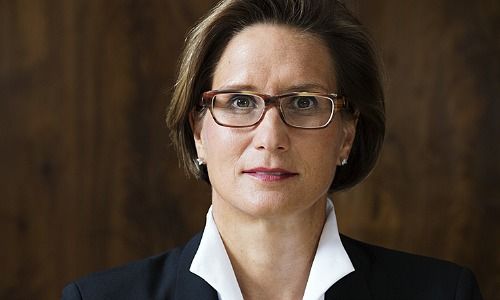The Swiss National Bank is a hefty client of asset managers. In order to avoid the impression of political influence, the central bank invests passively – and gets slammed for it.
Switzerland's big banks were criticized last week for helping finance exploration and production of fossil fuels. A group of non-governmental organizations tallied up Credit Suisse and UBS as major sponsors of such projects.
Meanwhile, the Swiss National Bank flies under the radar despite maintaining, at 150 billion Swiss francs ($151.1 billion), a huge investment portfolio. That is about to change: two left-wing groups last year launched an initiative to ban investments in firms that draw more than 5 percent of revenue from the production of weapons. The central bank in the annual report rejected the bid to restrict the freedom of investments, in accordance with the Swiss government.
Also recently, a student protest in favor of a more stringent political action plan against climate change gathered pace, putting demands for a strict regulatory framework for investments in business that damage the climate on the table. On Sunday, two green parties upset the political landscape in the greater Zurich region – together they now have the support of 25 percent of voters.
SNB: Neutral Policy
The SNB is implementing a so-called neutral investment strategy, unlike commercial banks or independent asset managers. The central bank's asset managers out of principal are investing in accordance with equity indexes and reject any type of stock picking.
The central bank doesn't want to set standards of a political dimension, according to Andréa Maechler, a member of the SNB directorate. She spoke at the annual event organized by the Swiss Funds and Asset Management Association in Bern. The standards that the bank follows are what it calls broadly accepted by society.
What Means Broadly Accepted?
The SNB doesn't invest in firms that violate massively fundamental human rights, cause grave damage to the environment in a systematic fashion or invest in the production of weapons banned globally. The SNB investments hence follow the global stocks indexes but exclude certain firms on the basis of these standards and after careful consideration.
These criteria are generally accepted, said Maechler, which raises the question of how broadly or narrowly it is interpreting the values and also how and who sets up the criteria. The SNB takes a passive role, that's for sure, and simply follows through with the decisions that society has taken. And risking to get under fire again and again.
The Franc as Root Cause
The bank only got into a position of having to defend its asset management in recent years, having started investing in equities following the expansion of its balance sheet. The balance however only started balooning because the SNB decided to buy huge amounts of foreign currency to keep the franc from appreciating.
The balance therefore became largely a mountain of forex, to put it bluntly. As the bank for evident reason is unable to buy Swiss equities, its equity portfolio also became exclusively foreign. In a bid to prevent any conflicts of interest, the SNB also excludes buying mid- or large-cap banks.
Who's Risk Is It?
Asked, when the bank would start reducing the balance again, Maechler responded by saying that the population needed to understand that the bank nowadays carried the risk that previously had been taken by the private sector.
The mandate of the central bank however in essence was maintaining price stability and not influencing the exchange rate of the franc. As soon as the economy was able to live with higher rates, the bank would raise the target rate. But, Maechler warned, we may very well end up with negative inflation again. And therefore, Switzerland needed an expansive monetary policy.
The SNB last week said it would keep the main rate at minus 0.75 percent and lowered its outlook for inflation in Switzerland.






























